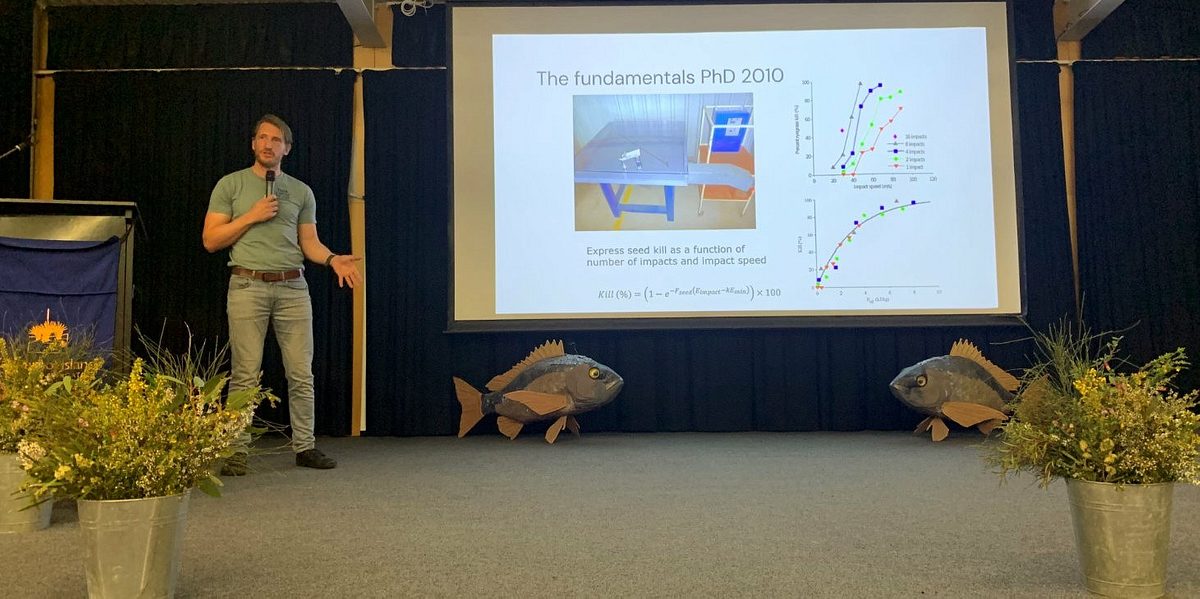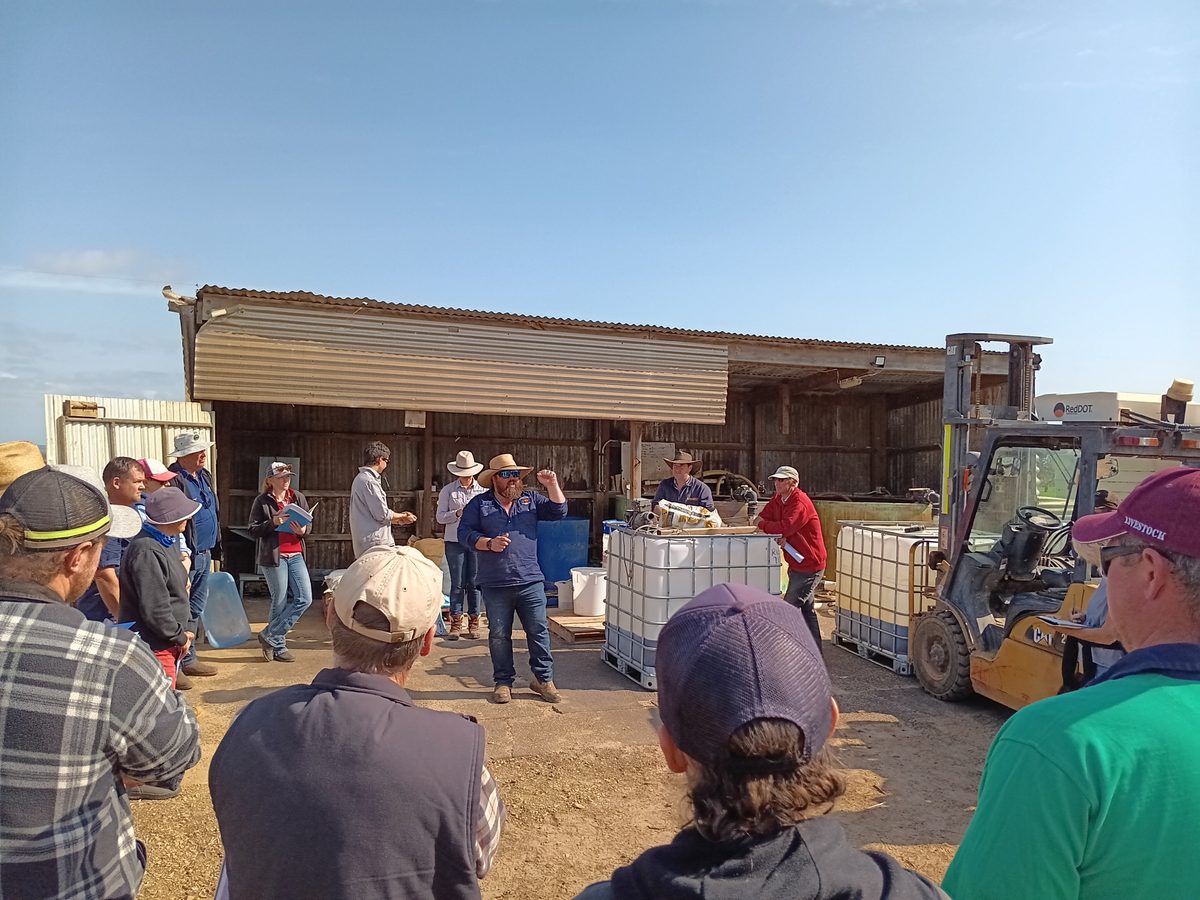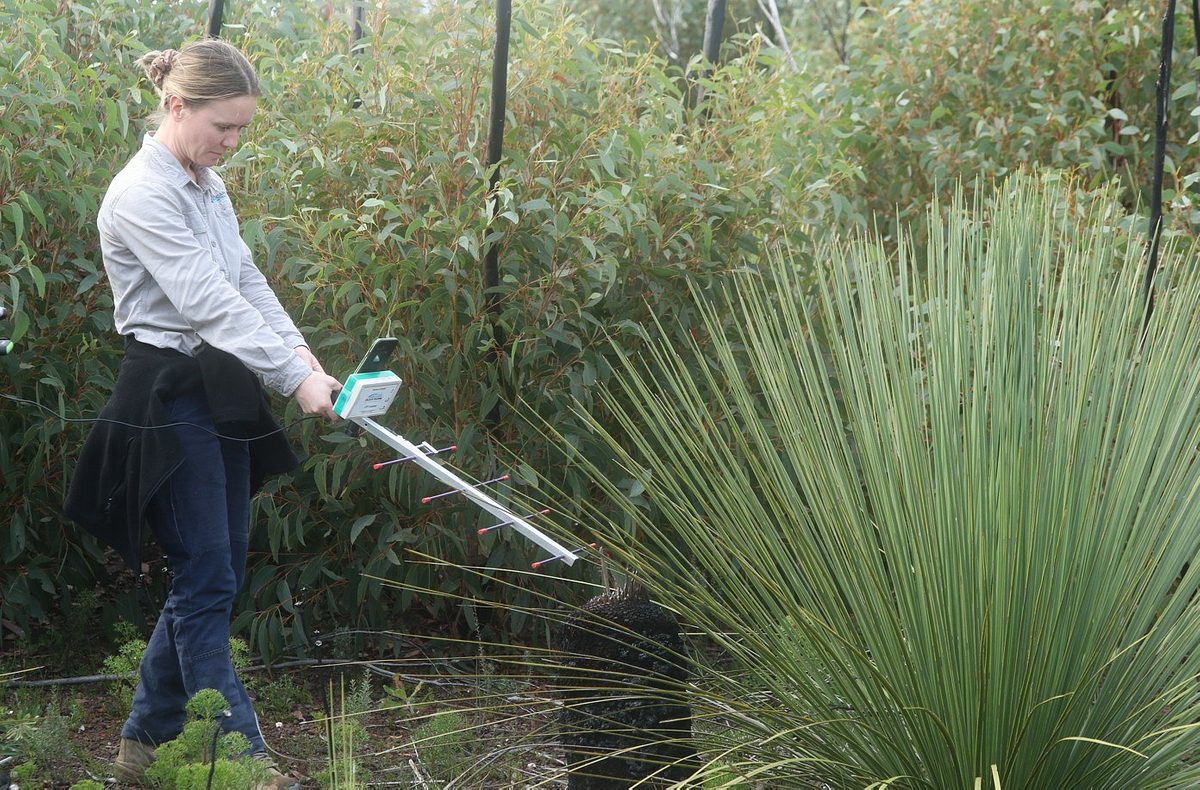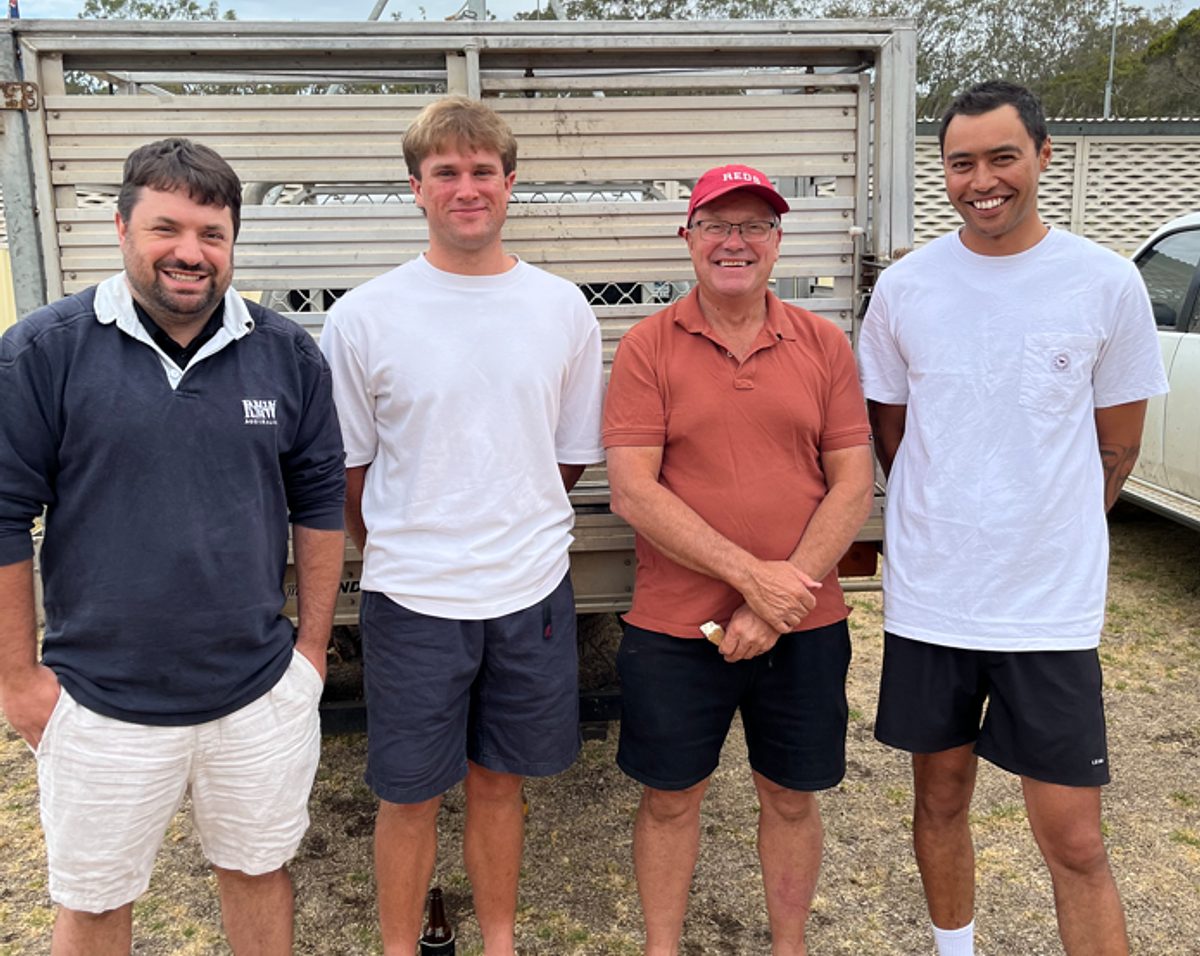KI farmer's innovations take seed across the world
Nick Berry, born and bred on Kangaroo Island, is a mechanical engineer and innovator on a mission to help farmers win the war against weeds without chemicals.
During his presentation at the VIII Island Arks Symposium on Tuesday, 27 August 2024, titled Farmers as the Future: Integrating Innovation and Landcare for Sustainable Farming, Nick shared his journey from a third-generation KI farmer to a global distributor of non-chemical weed-seed-killing mechanical devices, through his company Seed Terminator.
"Farmers are custodians of most of the land mass on Kangaroo Island," Dr Berry said.
"There is a massive opportunity for conservation on KI by working with farmers," he said.
Dr Berry's family participated in the soldier settler farming scheme on Kangaroo Island. He said clearing land as part of the scheme affected water and salt movement across his property.
To combat this, Dr Berry's grandfather installed WISALT-sealed banks as a first step in remediating the land.
Through the 1990s, Dr Berry's parents were involved in the LandCare program, planting hundreds of trees on their farm and fencing off areas to protect the natural environment.
"At the time, this was how farmers could protect the environment and the longevity of farming," Dr Berry said.
"The 1990s was a tough time for wool producers; cropping became a central focus on our family farm using no-till farming system," he said.
"Prior to the no-till movement, tillage was the main method of managing weeds; this involves ripping the ground open which obviously dries out the soil. The problem with this technique is that the soil becomes susceptible to wind and soil erosion. Kangaroo Island is moisture limited, despite being in a high rainfall area," he said.
"In a no-till farming system, instead of killing weeds with tillage, you kill them with chemicals to keep moisture in the soil," he said, "but you need chemicals to control weeds".
Dr Berry said that using chemicals to kill weeds results in farmers contributing to a natural selection process for herbicide-resistant weeds.
"This is a huge problem across Australia - weeds are becoming chemical resistant," Dr Berry said.
Growing up on a farm, Nick learned to drive a combine harvester at 12.
"Combine harvesters are the biggest spreader of weeds. Dad taught me to lift the front over the weeds to prevent the spread of weed patches" Dr Berry said.
In 2010, Nick began his PhD, developing an impact mill attached to a harvester to pulverise weeds, focusing on ryegrass.
The first step was to learn how to mechanically kill ryegrass seeds, which led to developing a model to predict how many weed seeds can be killed in a mill using impact.
In 2012, he developed the Integrated Weed Seed Destructor, renamed iHSD. However, the university owned the intellectual property, so Nick moved back to KI to farm.
But his dream of inventing a sustainable method for farmers to eradicate weeds remained.
In 2016, Nick teamed up with his uncle Mark Ashenden and had a crack at commercialising a new and improved model.
"We wanted to create a machine with a mechanical drive that was aerodynamic and bombproof," Dr Berry said.
"2016 was one of the longest harvests of my life," Dr Berry said,
"I spent countless hours under machines covered in chaff working out how to get these machines to work," he said.
Nick continued to test the technology and found farmers who wanted to use it.
Since then, Nick and his uncle Mark have built a team to support the manufacturing and distribution of a harvester attachment that terminates weed seeds before they germinate.
Aptly named the Seed Terminator, Nick's invention is designed and made in South Australia to target herbicide-resistant weeds. It can kill up to 99 per cent of ryegrass seeds, which are notoriously difficult to kill.
Today, Seed Terminator employs 40 people across its Lonsdale factory and distribution outlets in Echuca, Victoria, and Canning Vale, Western Australia.
Last year, Seed Terminator opened a European office in Belgium to supply its weed control device to New Holland's agricultural machinery production facility.
The company has produced more than 750 devices currently in operation in Australia and overseas and estimates that over the past seven years, they have avoided the use of over 12 million litres of herbicides.
Nick's constant source of inspiration is leaving farms in a better state for the next generation - despite the challenges.
After his presentation at the Island Arks Symposium, Nick was asked what the hardest thing to overcome in the Seed Terminator journey. He replied, "It was the narrative of theft (of intellectual property)"
"At the time, I remember writing this down - what is more important, to make a difference or to be known for making a difference?"
"And making a difference wins out every time."
The VIII Island Arks Symposium was proudly hosted by the Kangaroo Island Landscape Board with support from Regional Development Australia Adelaide Hills, Fleurieu and Kangaroo Island as well as the Government of South Australia’s Department for Environment and Water and Primary Industries and Regions SA.
In total 24 islands spanning the Tiwi Islands in northern Australia to Tasmania and New Zealand were represented with 131 delegates attending.




